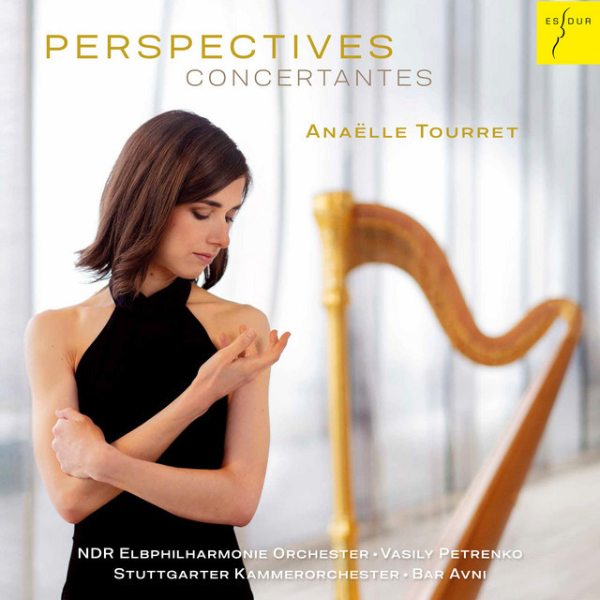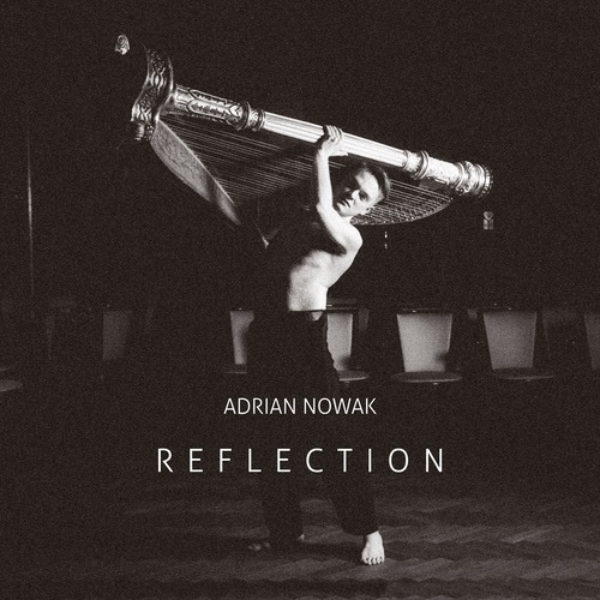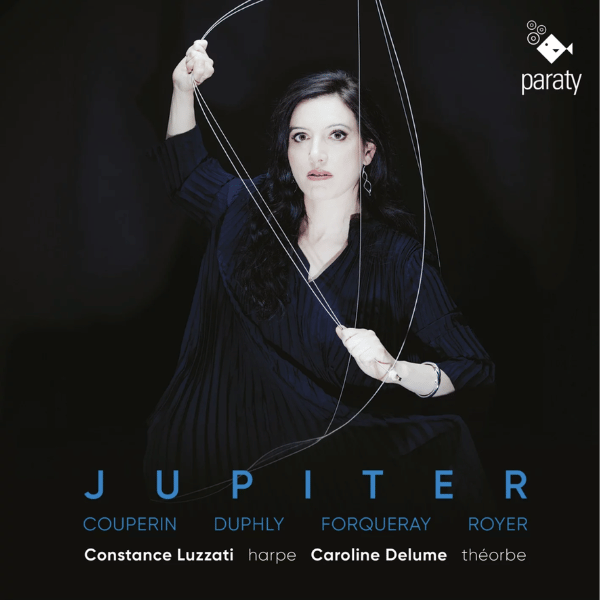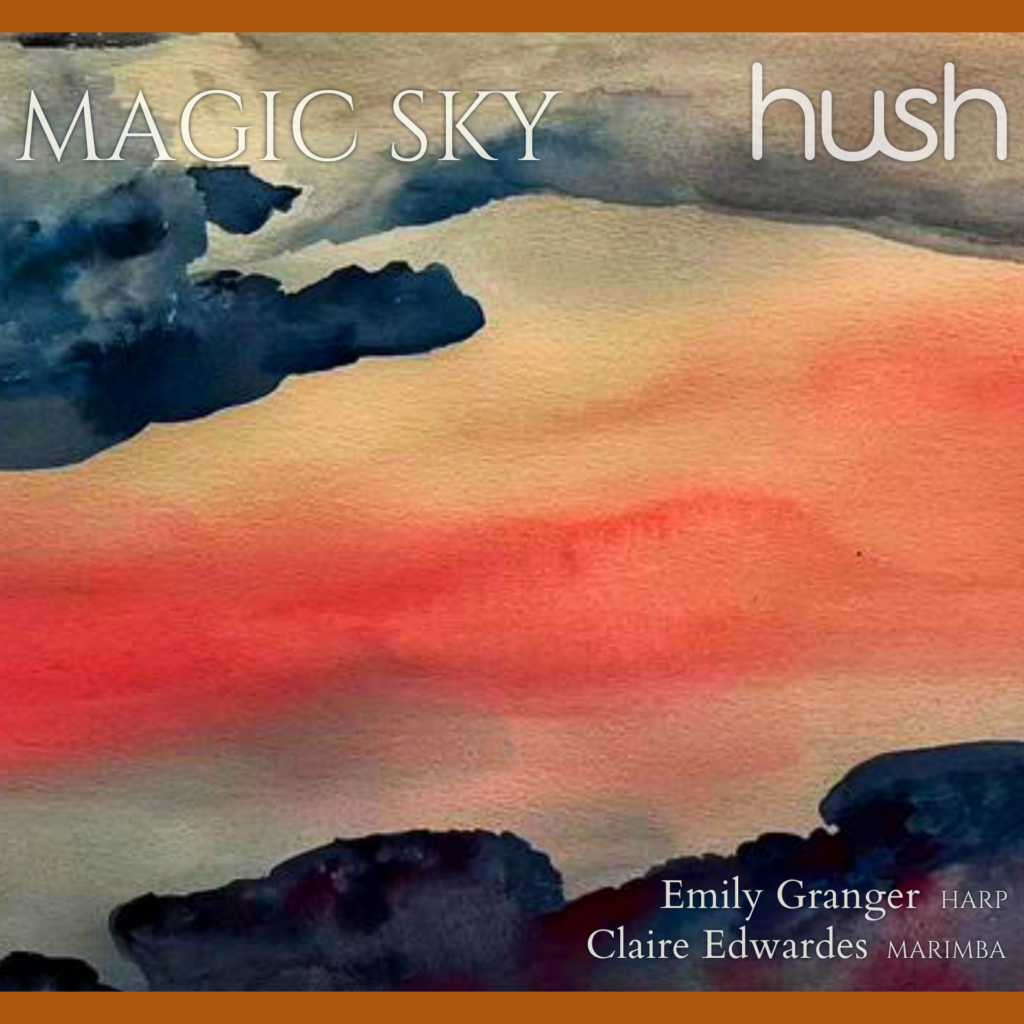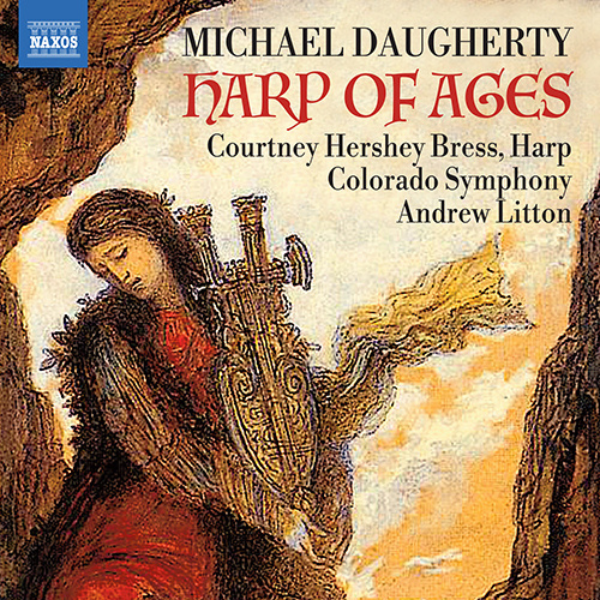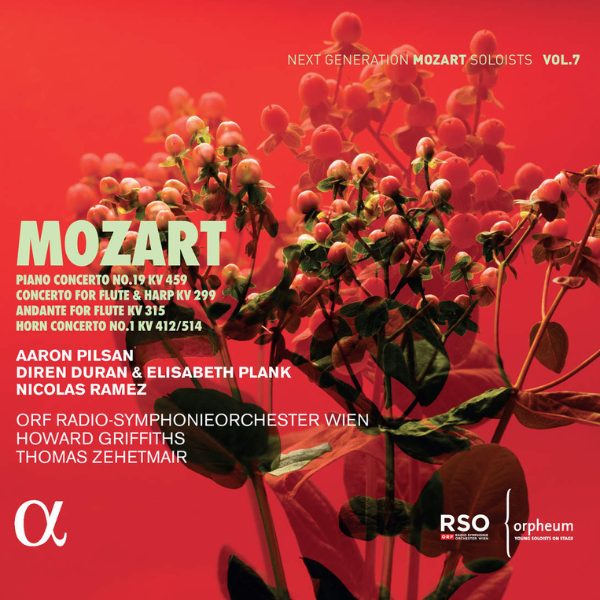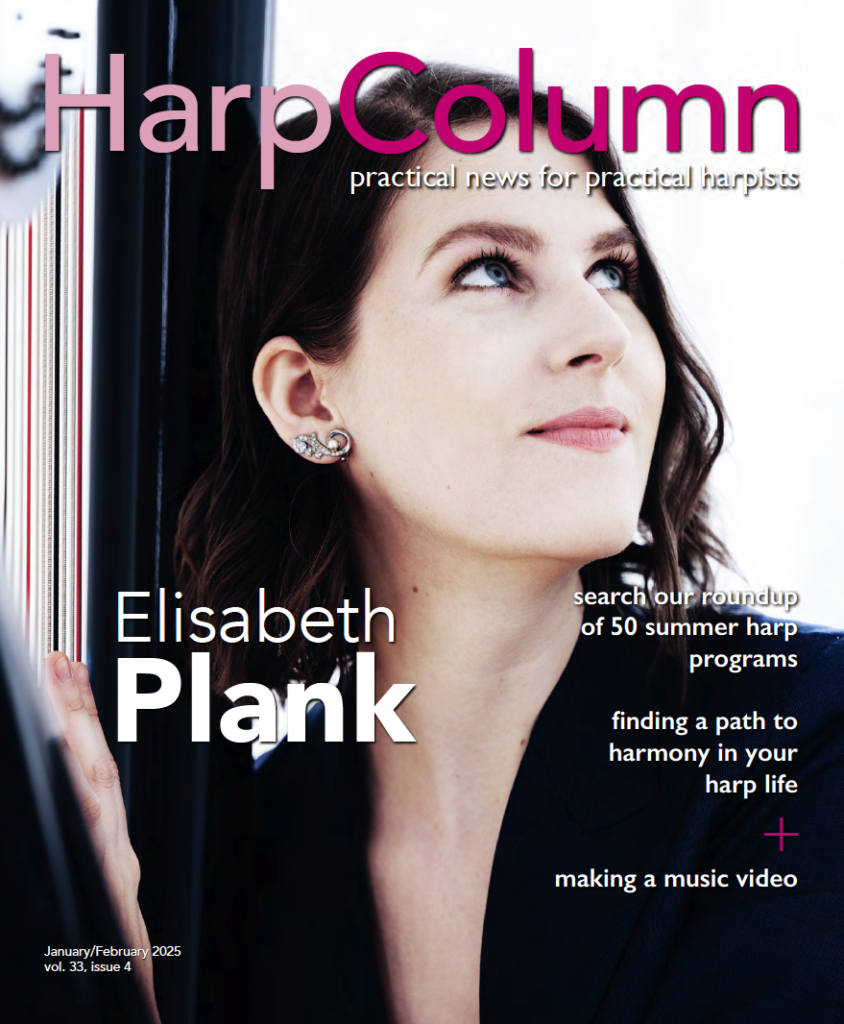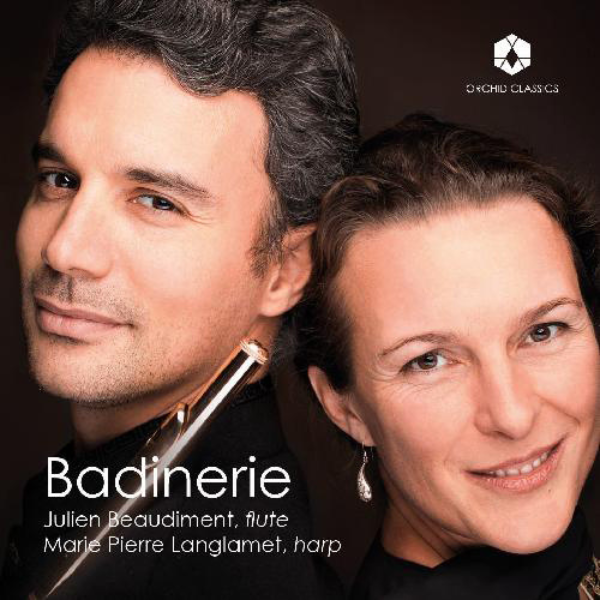
9/10
Marie-Pierre Langlamet, harp, and Julien Beaudiment, flute. Orchid Classics, 2024.
Flutist Julien Beaudiment and harpist Marie-Pierre Langlamet met in Beijing playing Mozart, and, as Beaudiment explains, it was “musical love at first sight.” Shying away from the standard lit, though, they delved into experimenting and arranging. The pair took their music on the road for 15 years before recording their first album Badinerie, a superb collection that pushes the boundaries of the well-worn flute and harp duo with depth and delight.
Things begin with a feisty Sonata for flute and piano by Francis Poulenc. Langlamet plays with a sultry and urgent quality that acts as a foil to Beaudiment’s luxurious tone. I am particularly in awe of how the two breathe the phrases—particularly the harp—losing any sense of a hard and fast metronomic count and rather leaning into brief lines of expression separated by hesitant pauses of contemplation.
To create the otherworldly effects of a string trio on pizzicato in the Adagio from Mozart’s Flute Quartet, Langlamet places a plastic wire within her strings. It’s haunting as if the most sorrowful aria one has ever had the pleasure to hear.
One of the most glorious arrangements on the album is Paul Arma’s Suite Paysanne Hongroise, a set of 14 Hungarian folk tunes by Bela Bartók. Each miniature requires a lot from the performer in terms of mood, a sense of place, even a scrap of storyline. Langlamet mimics the zither in one, then a cimbalom, and Beaudiment’s flashy playing helps us dance along.
Likewise in Fabrice Pierre’s arrangement of Astor Piazzolla’s L’Histoire du Tango, the two enter the seductive world of Argentina with expressive playing that taunts and teases. Passion spills over in three works by Manuel de Falla, as well as a sense of abandon.
A couple of favorites include a work less familiar by Nicolai Rimsky-Korsakov, Hindu Lied. It emanates richly perfumed air much like his mysterious Le Coq d’Or with unusual scales that showcase Beaudiment’s rich tone. Saint-Saëns’ Danse Macabre takes us on a ghostly ride, assuaged quickly by the gentleness of Debussy’s Beau soir.
Badinerie translates from the French to mean to do things instinctively for pleasure and without taking it too seriously. This is a serious album, though, one that shows the results of taking chances with music that may not at first have seemed translatable, and yet works in every way especially with such a skilled and perfectly blended team of musicians.





